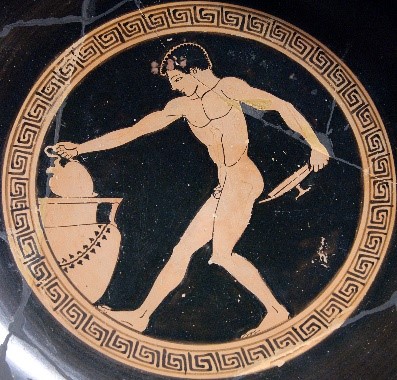Introduction: Discovering Greek Wines – A Palate Adventure
In this 4-part series, “Greek Wines. Small-Scale + Large Impact,” we look at why Greek wines should be on your radar.
Indigenous Grape Varieties: Greece boasts over 300 indigenous grapes, each with its own distinct flavors and characteristics. This impressive diversity allows wine lovers to explore a wide range of grape expressions that showcase Greece’s rich viticultural heritage. From the crisp and mineral-driven Assyrtiko to the aromatic and floral Moschofilero, there is a Greek wine to suit every palate. Exploring these indigenous varieties is like embarking on a voyage through Greece’s terroir and culture.
Distinctive Terroir: Greece’s diverse climate, abundant sunshine, and unique soil composition contribute to the exceptional quality of its wines. The sunny and dry climate allows grapes to fully ripen, resulting in concentrated flavors and vibrant acidity. The thin and poor soil, often found in mountainous regions, forces the vines to struggle, producing lower yields but grapes of exceptional quality. This combination of factors creates wines with complexity, depth, and a strong sense of place.
Captivating White Wines: Greek white wines have gained international recognition for their outstanding quality and distinct character. Assyrtiko, primarily grown in Santorini, produces bone-dry wines with high acidity, pronounced minerality, and refreshing citrus flavors. Malagousia and Moschofilero offer aromatic profiles with floral notes and hints of exotic fruits. These white wines are versatile and pair well with various cuisines, making them a delightful addition to any wine collection.
Expressive Red Wines: Greek red wines, particularly Xinomavro and Agiorgitiko, have also garnered attention for their depth and complexity. Xinomavro, often compared to Italy’s Nebbiolo, produces age-worthy reds with firm tannins, vibrant acidity, and flavors of dark fruits, spices, and earth. Agiorgitiko, known as the “Blood of Hercules” delivers elegant and medium-bodied wines with red fruit flavors and silky tannins. These red wines offer a unique twist on classic grape varieties and provide a compelling experience for wine enthusiasts.
Food-Friendly Styles: Greek wines are known for their food-friendliness and their ability to beautifully complement the country’s cuisine. With its emphasis on fresh ingredients, aromatic herbs, and vibrant flavors, Greek cuisine pairs exceptionally well with Greek wines. Whether you’re enjoying a seafood feast with a crisp Assyrtiko, pairing a lamb dish with a bold Xinomavro, or savoring Greek meze with a versatile Agiorgitiko, Greek wines elevate the dining experience and create harmonious pairings.

Wine! Greek For Me
In the Greek Tradition: “Quality is not an act, it is a habit.” – Aristotle
While Greece does have a rich wine history and has made significant contributions to the development of wine, there are a few factors that have contributed to its wines not being as commonly ranked among the top three wine countries in the world or featured on every wine list at every bar and restaurant. A few reasons include:
1. Limited export tradition: For a long time, Greek wines were primarily consumed domestically, and there wasn’t a strong focus on exporting them. As a result, Greek wines didn’t gain as much international recognition and exposure compared to wines from countries like France, Italy, and Spain.
2. Reputation and perception: In the past, Greek wines were often associated with lower-quality and inexpensive options. This perception has been changing over the years as Greek winemakers have been producing higher-quality wines, but it takes time to overcome old stereotypes and establish a new reputation.























